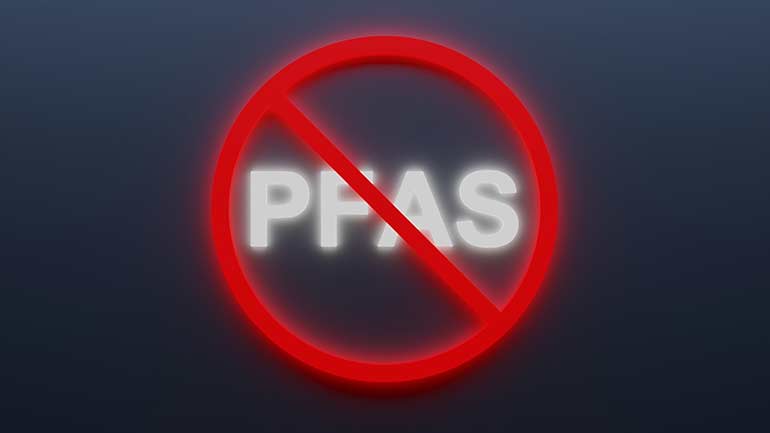EPEE seeks PFAS exemption for F-gases
25th September 2023
BELGIUM: The European Partnership for Energy and the Environment (EPEE) has requested an exemption for F-gases and fluoropolymers in any forthcoming PFAS restrictions.
The plea to the European Chemicals Agency was in response to a proposal by five EU member states – Germany, the Netherlands, Norway, Sweden and Denmark – to change the definition of PFAS substances, a move which would ban practically all HFC and HFO refrigerants.
EPEE, which represents the refrigeration, air conditioning and heat pump manufacturing industry in Europe, was responding to the European Chemicals Agency’s stakeholder consultation on the proposals which closed today.
“We requested these time-unlimited derogations to avoid a significant loss of efficiency for key products in heating and cooling,” said EPEE director general Russell Patten. “Further restrictions on the use of F-gases and fluoropolymers would drastically slow the deployment of heat pumps, on which the EU depends to reach independence from Russian fossil fuels and to meet the climate target by 2030.”
EPEE stated in its reply that a broad ranging PFAS ban would hinder the ongoing and future research and development of even safer and more energy-efficient devices. It maintained that F-gas refrigerants were essential to the optimal performance of equipment and products that contribute to the decarbonisation of the energy system and buildings, and provide efficient heating and cooling solutions for domestic, industrial, commercial, and medicinal applications, as well as many others.
A PFAS ban through the European REACH regulations under the proposed new definition would also curtail the production and use of fluoropolymers which are used in a number of critical refrigeration components, including vital gaskets and other sealing systems, electrical and electronic components, and wear-resistant coatings.
EPEE points out that there are currently no viable alternatives to fluoropolymers that could fulfil the same criteria with the same level of efficiency and safety. It insists that fluoropolymers stand up to the unique and harsh operating conditions of RACHP equipment, and are used for their sealing capacity, resistance to pressure and temperature, persistence, electrical properties and low friction.
In its response, EPEE said: “Fluoropolymers offer the safest way to transport refrigerants and avoid leakages of toxic and flammable gases. A ban on their use would mean returning to less efficient, less safe, older alternatives, and would impact many European industries beyond the RACHP sector itself.”
EPEE also raised concerns about the risk of equipment obsolescence, as many types of RACHP equipment can be used from 12 to up to 30 years in certain applications. As such the restriction proposal could impact end-of-life practices, recycling and reclamation of gases, exports from Europe, maintenance and refilling of existing equipment.
Related stories:
PFAS proposals are “disproportionate” – 2 September 2023
BELGIUM: An association representing 770,000 European technology companies has called the proposed “blanket restriction” of all PFAS, regardless of their toxicity and risk profile, disproportionate. Read more…
PFAS exemptions required for critical applications – 10 July 2023
GERMANY: A leading German research body has said that, without exemptions, any future PFAS regulation could jeopardise the safe and effective uninterrupted operation of refrigeration and heat pump systems. Read more…
PFAS ban would render systems unsafe – 25 May 2023
GERMANY: A leading European refrigeration research council claims that the safe, efficient and trouble-free operation of RACHP systems is not possible without the use of PFAS-containing materials. Read more…
PFAS ban affects most refrigerant blends – 12 February 2023
EUROPE: The banning of just five refrigerants under the new PFAS regulation proposals would lead to the banning of virtually all the current lower GWP HFC/HFO alternative refrigerant blends. Read more…
PFAS ban considers impact on heat pumps – 7 February 2023
EUROPE: A number of HFC refrigerants and low GWP HFO alternatives could be banned under new PFAS chemical restrictions proposed to the European Chemicals Agency (ECHA). Read more…
PFAS refrigerant ban could impact EU green aims – 4 January 2023
EUROPE: The chemical industry claims that proposals to ban certain refrigerants as PFAS substances under the European REACH regulations could compromise EU Green Deal and REPowerEU goals. Read more…







